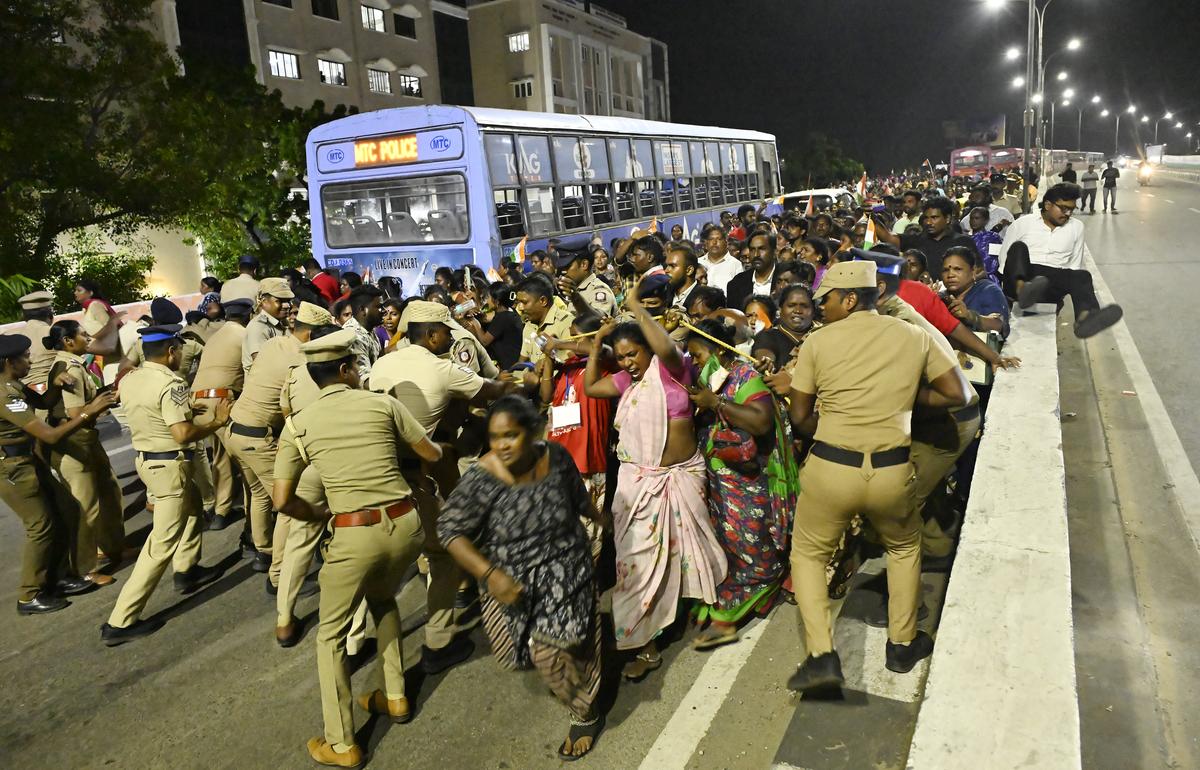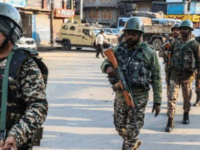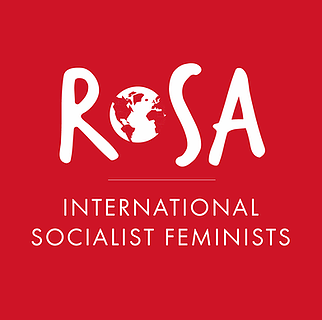Dirty Work and Dignity: Chennai’s Sanitation Workers Fight Back Against Capital and Caste

Chennai is overflowing, but it’s not with garbage—it’s with resistance. The recent protests by
the city’s sanitation workers are a powerful stand against an injustice as old as the city itself,
yet repackaged for the 21st century. This isn’t just a labor dispute; it’s a fight against a
system that has long used capital to formalize an ancient caste-based oppression,
disproportionately impacting women. The workers aren’t just asking for a fair wage; they are demanding to be seen, to be valued, and to be free.
The Price of Progress: When Privatization Meets Precarity
The latest battle began when the Greater Chennai Corporation (GCC) awarded a massive,
multi-crore contract to private firms to manage solid waste. For the city’s sanitation workers,
many of whom are women from Dalit communities, this wasn’t a business decision—it was a
direct assault on their lives.
These workers, classified under the National Urban Livelihoods Mission (NULM), already
exist in a state of constant precarity. They have no job security, no benefits, and a wage that
can fluctuate wildly. Privatizing their work is a textbook move by capital, one that shifts
responsibility from the public sphere to private corporations. This move allows the state to
step back from its obligations while intensifying the exploitation of workers. A recent report
from a workers’ rights organization showed that such privatization schemes serve to
“reproduce the republic of caste,” making already vulnerable workers even more
disposable. The fear is real: private contractors will simply push wages down further to increase their profit margins.
A Coercive State: The Chennai Protests as a Case Study
When the workers walked off the job in early August, the city’s streets quickly became a
visible testament to their labor. Garbage piled up, and a crisis for the city’s middle class was
born. The workers understood the power of this disruption; by withdrawing their labor, they
forced the city to confront the essential nature of their work.
The state’s response was swift and brutal.
The Judiciary as a Weapon: The Madras High Court sided with the state, ordering police to
clear the protest site and labeling the workers’ dissent a public nuisance. This legal
maneuvering reframed the fight for justice as a problem to be solved by law enforcement.
The Midnight Crackdown: Following the court order, police moved in with force. They
conducted a midnight crackdown that saw hundreds of workers detained. In a particularly
chilling act, authorities confiscated their phones, cutting off their ability to communicate with
family and solidarity networks. The workers were shuffled into marriage halls—a kind of soft
detention meant to break their morale and their will to protest.
A Hollow Promise: As the repression continued, the government tried to co-opt the
movement with a facade of negotiation. The GCC offered mandatory employment under the
private contractors. But the unions saw right through this empty promise. The workers were
not fighting to simply change bosses; they were fighting for the dignity and security that only a permanent, public job could offer.
The Unseen Burden: A Feminist Struggle
This struggle is fundamentally a feminist one. Sanitation work in India is not
gender-neutral—it is an occupation overwhelmingly performed by women from Dalit
communities. Their bodies are on the front lines, exposed to toxic waste, health hazards,
and the social stigma of their caste. When the government moves to privatize sanitation
services, it is not just threatening jobs; it is directly targeting the livelihoods of thousands of
marginalized women.
Their organized resistance isn’t just a reaction to economic policy. It’s a powerful act of
reclaiming their bodies and their agency. By standing together, they are challenging the
patriarchal and casteist structures that have historically worked to render them invisible and disposable.
A Global Fight, A Universal Lesson
The Chennai protests are part of a shared, global struggle. From the hot garbage summer of
2025 in the United States, where sanitation workers from the Teamsters union went on
strike for fair wages, to the ongoing fight in São Paulo, Brazil, against the privatization of
sanitation services, the story is the same. Workers are challenging the notion that their
essential labor should be cheapened and sold for private profit.
In Johannesburg, South Africa, informal waste pickers actually won a victory against
privatization, proving that collective action can force a powerful reversal. This lesson is a
beacon of hope: resistance works.
For the sanitation workers of Chennai, the path forward is clear. It requires more than a
compromise; it requires a complete rethinking of their place in society. The government must
reject privatization, grant permanent jobs, and invest in the mechanization of labor—a
solution long advocated by Dr. B.R. Ambedkar. This is not just an economic demand; it’s a
political one that seeks to dismantle the very system that has bound them to this labor for
generations. Their fight is for all of us, a fight for a just society where no one is left behind,
and no work is done at the expense of human dignity.





